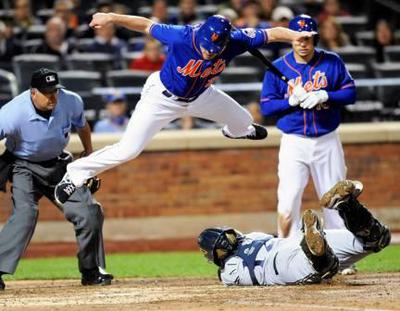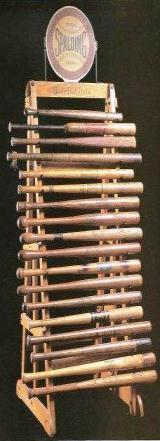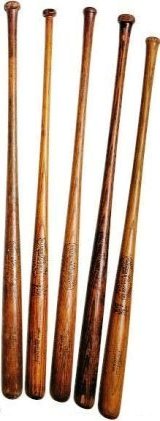Interference at home?
by Pat
(FLEMINGTON,NJ)

Pat asked: Interference by a batter?
Is a there interference at home if a right handed batter crosses home plate to get out of the way of a runner trying to score on a passed ball?
Assuming the batter has not got in the way of either the catcher or pitcher covering home.
Rick answered: Pat, thank you for your question.
Rule 6.06 A batter is out for illegal action when...
(c) He interferes with the catcher's fielding or throwing by stepping out of the batter's box or making any other movement that hinders the catcher's play at home base.
Exception: Batter is not out if any runner attempting to advance is put out, or if runner trying to score is called out for batter's interference.
Rule 6.06 (comment) If the batter interferes with the catcher, the plate umpire shall call "interference". The batter is out and the ball is dead. No player may advance on such interference(Offensive Interference) and all runners must return to the last base that was, in the judgment of the umpire, legally touched at the time of the interference.
If however, the catcher makes a play and the runner attempting to advance is put out, it is to be assumed there was no actual interference and that runner is out, not the batter. Any other runners on base at the time may advance as the ruling is that there is no actual interference if a runner is retired. In that case, play proceeds just as if no violation had been called.
This can get a little confusing in real time. There is no interference call, just because the batter stepped across the plate to avoid being in the way of the runner, unless in so doing he interferes with the catcher's or any defensive players ability to make a play at the plate.
The batter could go backwards out of the way of the runner; but there is no reason he cannot go across the plate if he is judged by the umpire to have not interfered. Just because he crossed the plate, doesn't necessarily mean there was interference.
Because that call by the umpire is a judgment call, there is no ability to argue it, as you cannot argue judgment calls.
I would bet this one got a little dicey at the time. If "interference was called at the time, what did the umpire say created the interference? I would be interested to know.
Yours in baseball,
Rick
Click here to post comments
Join in and write your own page! It's easy to do. How? Simply click here to return to Ask The Baseball Coach.
|





